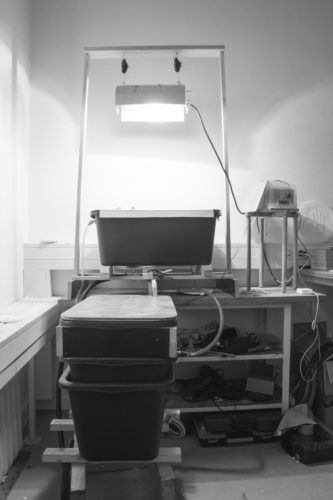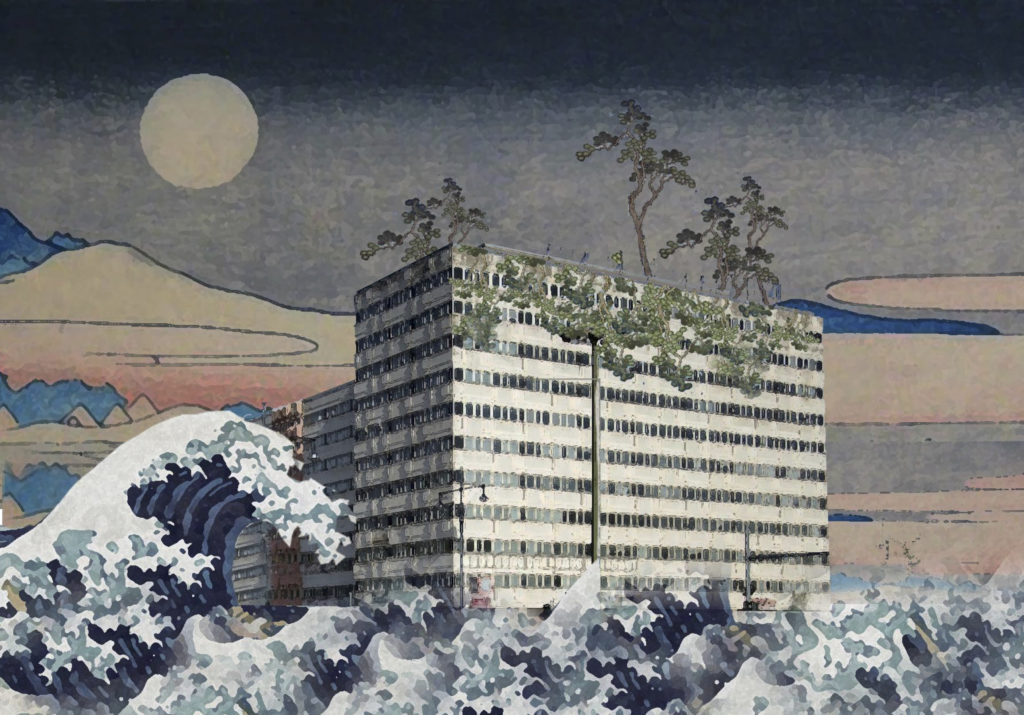We sized up our project, repurposing standardized IBC-Containers to make a simple but efficient system, buildable everywhere in the world. The system will be open source.


We sized up our project, repurposing standardized IBC-Containers to make a simple but efficient system, buildable everywhere in the world. The system will be open source.


Our idea is to found a organization selling, nice and compact mostly self running “growing boxes” which everybody can buy to explore our system for themselves at home, with the money paid for them, a fund will be established, from which our organization is supporting social groups in development countries etc. to build the IBC growing system.

Through this we hope to build up a social network providing the needed parts (3D-printed, worms, etc.) to each destination. We will start this project in Nairobi, Kenya where we will try to work together with local resellers, fablabs and farms providing everything so communities are able to grow there own vegetables, regardless off the ground pollution to create some kind of self sufficiancy for people dependend on the market prices and big companies.

Hydroponic is a method of growing plants without soil, using nutrient solutions in a water solvent. Vermicompost is the product of the composting process using various species of worms to create a heterogeneous mixture of decomposing food waste, one of the best natural fertilizers. We are aiming to create a hyper efficient plant growing and waste reducing system.

We managed to successfully combine these two systems into a cycle. The vermicompost is decomposing kitchen scraps, paper etc. into fertilizer, which drips into a water stream. The water stream brings the nutrient-, and oxygen-rich water to the plants. In order to keep the compost wet and to get the extra nutrition, the system is able to “shower” the enriched water once in a while over the compost.

What if …
… apocalypse?
End of the world. The „Haus der Statistik“ is the last remnant of land. The last opportunity to live. Transformed into a residential house, a machine, a complex for production, for surviving. The question about possibilities for every single person to prepare itself. What kind of resources has the Haus der Statistik to offer a self-sufficient way of life and in wich role are its inhabitants?
There is the situation of an apocalypse. A ficction. And a concept:
the „Haus der Statistik“ is an isolated island, surrounded by water. Using existing knowledge people are able to prepare themselves. Food and water is the most important part of surviving. To enable a varied production of different nourishments there is the need for space as well as the right knowledge of climate and air conditions. But it is not only food, but also social interaction, which is as important as sustenance. Living together in a limited space means that everyone has to know how to act in a collective.
To enable an essential food supply there is the need of high-tech equipments. Using the full depth of the building and to guarantee growth troughout the year there are special lights mounted to the ceiling. Special mirrors which are orientated in a specific order can help not to waste too much energy and to collect the light. As an example, the facade can be used to grow vine. To provide a wider range of supply the farm sector also offers space for livestock, like cows, pigs or chickens. Their excretion can be used as fertilizer for the plants.
Premise and base for the whole production is a large amount of energy, gained mainly by water, wind and sun. The interaction of windmills, solar panels and special indoor bikes provide electricity for the community. A large water pool on the rooftop collects all the rainwater. With a special filltration plant the water can be processed into drinking water and stored in large water tanks inside the building.
Sophia Branz / Julius Führer / Itirit Hatairatana / Patrick Hemmerden / Nina Vollbracht